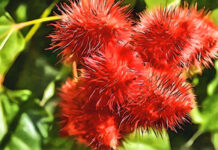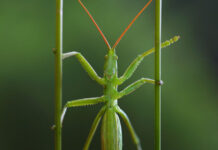The Italian government under the reins of Coldiretti disperses public resources in four decrees on insect labeling that are outlawed, for being unconstitutional and contrary to European law, as well as useless.
1) Italy, insect decrees, March 23, 2023
Four decrees signed by the ministers of agriculture, sovereignty and the Hon. Francesco Lollobrigida, business and food Made in Italy Adolfo Urso and health Prof. Orazio Schillaci. The decree-photocopies, dated March 23, 2023, differ only in the variation of edible insects in each considered (cricket, migratory locust, mealworm and gilla larva).
1.1) Background
The premises of the four decrees recall several regulatory sources:
- EU regulations authorizing the placing on the market of the various insects mentioned above in different forms, conditions and quantities of use as ingredients in certain categories of food (identified through special EFSA database). Under Novel Food Regulation (EU) No 2015/2283 and reform of its implementing regulation (reg. EU 2017/2470. See notes 1,2,3),
- Law Dec. 24, 2012 no. 234, Article 36, which entrusts ‘competent ministers’ (so it is hoped) with the implementation by decree of ‘non-autonomously applicable implementing acts adopted (…) by the European Commission in implementation of European Union acts already transposed or already effective in national law’. (4)
1.2) Labeling and shelf placement requirements.
The label of food products containing the various insects contained in the four decrees must report:
- their respective legal designations as set forth in the authorization regulations as novel foods, and
- possible allergic reactions (in the case of crickets, for possible sensitivities by those allergic to crustaceans, shellfish, and dust mites). Nothing new compared to European regulations,
- ‘in the principal field of view, printed in such a way as to be easily visible and clearly legible, the following shall be stated, “The foodstuff contains…”
- the products in question ‘must be offered for sale in separate compartments, marked by appropriate signage’. As is already the case in practice for some innovative food categories (e.g., products with protein formulas).
1.3) Mandatory provenance
‘In order toensure correct and complete information to consumers, strengthen the prevention and suppression of food fraud and unfair competition, it is obligatory to state’ on the label of the products under consideration ‘the indication of the place of origin.
2) Novel food, EU rules. The case of crickets
EU Regulations 2022/188 and 2023/5 authorize the placing on the market, as novel foods, of:
- Acheta domesticus (domestic cricket) frozen, dried and powdered (ground) as a snack and food ingredient in a variety of food products,
- Defatted powder of crickets(Acheta domesticus), with exclusive five-year olds
- in favor of Fair Insects B.V. (NL) and Cricket One Ltd. respectively (Vietnam. See notes 5,6).
2.1) EU labeling requirements
Labels of foods containing the aforementioned novel foods-according to the aforementioned EU regulations, which are directly applicable in the 27 member states-must always state:
- the designations ‘Acheta domestic us (domestic cricket) frozen’ or ‘Acheta domesticus (domestic cricket) dried/powdered,’ depending on the form used. That is, ‘partially defatted powder of Acheta domesticus (house cricket).’
- the statement, ‘ next to the list of ingredients,’ that ‘this ingredient may cause allergic reactions in consumers with known allergies to shellfish and shellfish products, shellfish and shellfish products, and dust mites’ (5,6).
3) Infringement of constitutionality
Law 234/12 delegates the relevant ministers – after agreement with the State-Regions Conference, which on the decrees under consideration was reached at the session March 22, 2023 – to only ‘technical adjustments and implementing acts of the European Union’ related to measures ‘not automatically applicable’ (Article 36. See supra, para. 1.1).
All European regulations authorizing novel foods, moreover, specify both the ‘conditions under which the novel food may be used’ and the ‘ additional specific labeling requirements’ and any ‘other requirements’. (3) Therefore, the conditions for the exercise of ministerial delegation are not met.
4) Violations of European law
Excessive delegation of authority absorbs any further grounds of illegality of the ministerial decrees under consideration, on the grounds of conflict with the Constitution of the Italian Republic. Added to this are violations of European law, as expressed below:
- reg. EU 1169/11, Article 38.1(National provisions). ‘As to matters expressly harmonized by this regulation, member states may neither adopt nor maintain national provisions except where Union law so authorizes.’ In the present case, the Italic decrees intervene on matters subject to specific regulation by special European regulations. (7)
4.1) Origin and provenance, evidentiary burdens
‘Member states may introduce provisions concerning the mandatory indication of the country of origin or place of provenance of food only where there is a proven link between certain qualities of the food and its origin or provenance.
When notifying such provisions to the Commission, Member States shall provide evidence that the majority of consumers attach significant value to the provision of such information’ (EU Reg. 1169/11, Article 39.2).
4.2) Italy and France compared
Italian ministers – in defiance of the above-mentioned EU rules – tried to justify their fantasies about the origin of insects by citing ‘higher needs for more complete consumer information and prevention of fraud and unfair competition, to further specify.’
In contrast, the French government has already passed the scrutiny of the Court of Justice in demonstrating what is necessary to prescribe milk origin labeling. (8) And he focused on real priorities, with no clutches in his head. Having prescribed the indication of the origin of meat-beef, pork, sheep and poultry-at the restaurant. (9)
5) Coldiretti’s orders.
The four decrees miserably express, once again, Coldiretti’s orders. From which in fact came the following proclamations:
- ‘most new products come from outside the EU, such as Vietnam, Thailand or China (…) and it is therefore important that the origin is always indicated on the label’,
- ‘Italians, for the vast majority, would never bring insects to the table, as they are considered alien to the national food culture:
- 54 percent are in fact just against insects at the table, while 24 percent are indifferent, only 16 percent are in favor and 6 percent do not answer, according to the Coldiretti/Ixe’ survey. (10) What survey, on what sample? The same numbers were deducted 6 years earlier, in 2017. (11)
6) Interim Conclusions
Fratelli d’Italia unfortunately falls into the error of following the orders of an agricultural confederation that in recent decades has had its tutelary deities in Matteo Renzi in Italy and Paolo De Castro in Strasbourg. And in commanding ‘blindly’ agribusiness policies in Italy he has reaped the following results in recent years:
- Approximately 400 thousand farms extinguished between 2010 and 2020 (-30%) while the area decreased by 2.5% (source: Istat),
- negative trade balance (29.8 billion v. 29.4 as of 6/30/22, source Ismea),
- ‘very vulnerable’ to degradation over 10 percent of soils (source Ispra). (12)
#CleanSpades
Dario Dongo
Notes
(1) Dario Dongo, Andrea Adelmo Della Penna. Insects as novel foods, state of the art in the European Union and UK. GIFT (Great Italian Food Trade). 18.8.22
(2) Dario Dongo. Domestic crickets and novel foods, some clarity. GIFT (Great Italian Food Trade). 17.1.23
(3) Commission Implementing Regulation (EU) 2017/2470 establishing the Union list of novel foods under Regulation (EU) 2015/2283 of the European Parliament and of the Council on novel foods. Text updated 6.2.23 on Eur-Lex https://eur-lex.europa.eu/legal-content/IT/TXT/?qid=1679934508136&uri=CELEX%3A32017R2470#d1e110-72-1
(4) Law Dec. 24, 2012, no. 234.
General rules on Italy’s participation in the formation and implementation of European Union laws and policies https://www.normattiva.it/uri-res/N2Ls?urn:nir:stato:legge:2012;234~art43
V. Chapter VII (Fulfilment of obligations arising from Italy’s membership in the European Union), Article 36
(5) Reg. EU 2022/188, authorizing the placing on the market of frozen, dried and powdered Acheta domesticus as a novel food https://eur-lex.europa.eu/legal-content/IT/TXT/?uri=CELEX%3A32022R0188&qid=1679936635921
(6) Reg. EU 2023/5, authorizing the placing on the market of partially defatted powder of Acheta domesticus (house cricket) as a novel food https://eur-lex.europa.eu/legal-content/IT/TXT/?uri=CELEX%3A32023R0005&qid=1679935610617
(7) Reg. EU 1169/11, Articles 9 and 10. Reg. EU 2015/2283 and subsequent implementing regulations
(8) Dario Dongo. National rules on origin labeling, green light from EU Court of Justice. GIFT (Great Italian Food Trade). 4.10.20
(9) Dario Dongo. Origin of all meats in restaurants, the French lesson. GIFT (Great Italian Food Trade). 25.11.19
(10) Prandini: “From worms to wine, enough of this Europe hostage to multinationals .” https://www.ilpuntocoldiretti.it/attualita/economia/prandini-dai-vermi-al-vino-basta-con-questa-europa-ostaggio-delle-multinazionali/ The Coldiretti Point. 24.1.23
(11) New EU regulation. As of January 1, okay for insects on the table. But 54% Italians are against it. https://www.quotidianosanita.it/m/scienza-e-farmaci/articolo.php?articolo_id=55028 Health Daily. 22.10.17
(12) Duccio Facchini. Inquiry into BF, the real “ruler” of Italian industrial agriculture. https://altreconomia.it/inchiesta-su-bf-il-vero-sovrano-dellagricoltura-industriale-italiana/ OtherEconomy. 1.1.22
Dario Dongo, lawyer and journalist, PhD in international food law, founder of WIISE (FARE - GIFT - Food Times) and Égalité.







